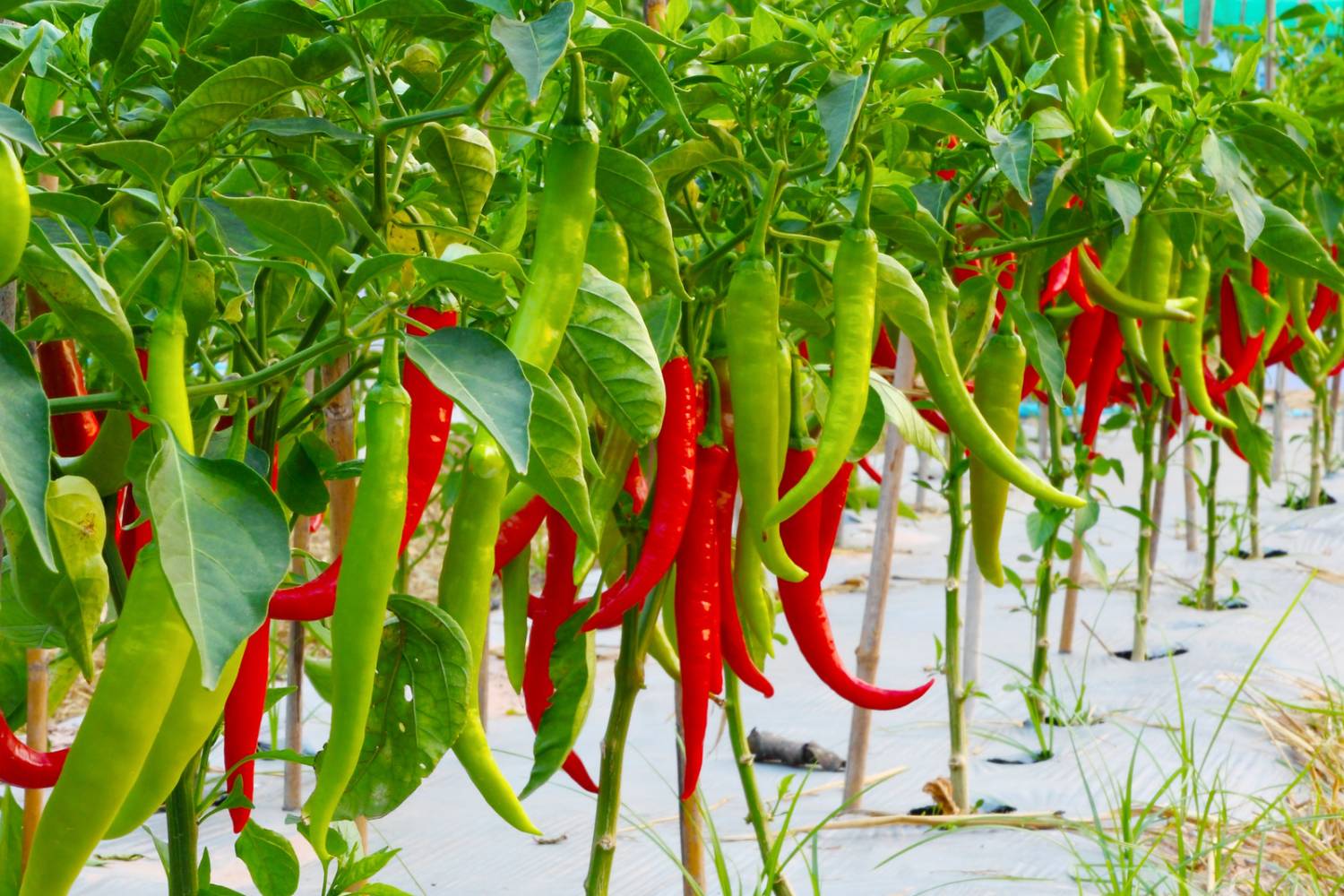Discover the Best Fertilizers for Peppers: Top Picks for Optimum Growth
Discover the Best Fertilizers for Peppers: Top Picks for Optimum Growth
Blog Article
Organic Vs. Synthetic Fertilizers: Which Is Best for Nurturing Healthy And Balanced Pepper Plants?
In the world of supporting healthy pepper plants, the choice between synthetic and natural plant foods stands as an essential decision with significant effects. While both alternatives objective to give vital nutrients to sustain plant development, the nuances of their influence on the dirt, plant wellness, and the atmosphere spark a debate that mirrors throughout the gardening area. Recognizing the distinct benefits and prospective pitfalls of each plant food kind is important for pepper growers looking for to optimize their returns while maintaining a lasting and eco-conscious approach.
Advantages of Organic Fertilizers
Organic plant foods use a sustainable and environmentally-friendly method to beneficial pepper plants, offering essential nutrients without using synthetic chemicals. These all-natural fertilizers are originated from natural resources such as compost, manure, bone meal, and seaweed, promoting soil wellness and biodiversity. Unlike synthetic plant foods, organic choices release nutrients gradually, guaranteeing a well balanced and steady supply for pepper plants to prosper.
One significant benefit of natural fertilizers is their ability to enhance soil structure and water retention. By boosting soil health and wellness, natural fertilizers promote beneficial microbial activity, which assists in nutrient uptake by pepper plants. Furthermore, natural fertilizers decrease the threat of chemical run-off, safeguarding water resources from air pollution and securing the environment.
Additionally, natural fertilizers add to long-term soil fertility by advertising the development of beneficial soil organisms. These organisms assist damage down natural issue, launching nutrients in a form that is quickly obtainable to pepper plants. best fertilizers for peppers. By cultivating a healthy soil environment, natural plant foods support sustainable pepper farming practices that benefit both plants and the atmosphere
Disadvantages of Artificial Fertilizers
Artificial plant foods, in contrast to their organic equivalents, present different disadvantages when made use of to nurture pepper plants, affecting both plant health and wellness and environmental sustainability. One significant downside of synthetic plant foods is their propensity to leach nutrients from the dirt rapidly.
Furthermore, the overuse of artificial plant foods can add to water air pollution. Excess plant foods not absorbed by plants can get rid of right into water bodies, causing eutrophication, where algae flowers deplete oxygen degrees in the water, hurting marine life. Additionally, synthetic fertilizers are normally stemmed from non-renewable sources, such as nonrenewable fuel sources, adding to carbon discharges and ecological deterioration throughout their production.
Nutrient Absorption Comparison
Reliable nutrient absorption plays a vital role in the general health and growth of pepper plants. When contrasting organic and artificial plant foods in regards to nutrient absorption, organic fertilizers have the benefit of providing a much more well balanced and slow-release resource of nutrients (best fertilizers for peppers). Organic fertilizers consist of a selection of macro and micronutrients that are not only valuable for the plants however additionally promote healthy and balanced dirt microbial activity, which helps in nutrient uptake. On the various other hand, artificial plant foods frequently supply a quick launch of nutrients, which can bring about seeping and runoff, leading to lower nutrient absorption prices by the plants.
Moreover, natural plant foods boost dirt framework and water retention ability, enabling pepper plants to gain access to nutrients a lot more successfully. This better dirt top quality helps with root development, allowing better nutrient absorption. Synthetic fertilizers, although initially boosting plant growth as a result of their high nutrient focus, might impede long-lasting nutrient absorption by degrading dirt wellness with time.
Ecological Influence Considerations

On the various other hand, synthetic plant foods, although commonly more instantly readily available and concentrated to plants, can have detrimental results on the atmosphere if not used properly (best fertilizers for look at here now peppers). Their manufacturing requires high power inputs, resulting in greenhouse gas exhausts and adding to climate adjustment. The drainage of excess synthetic plant foods can contaminate water resources, leading to eutrophication and harming water ecosystems.
Finest Plant Food Practices for Peppers
When feeding pepper plants, optimizing nutrient uptake and reducing ecological influence are key factors to consider. To attain this, it is necessary to adhere to best fertilizer practices tailored to the certain demands of pepper plants. One crucial practice is to perform a soil test this website before applying any fertilizers. This test can identify the pH level of the dirt and recognize any nutrient deficiencies, guiding you in selecting the most suitable fertilizer formulation.
One more essential method is to fertilize pepper plants at the correct time. Normally, peppers profit from getting fertilizer at planting and afterwards once more when they begin to blossom. Over-fertilizing can bring about vitamins and mineral inequalities and damage the plants, so it is crucial to comply with suggested application rates.
In addition, selecting a balanced fertilizer with an NPK proportion that fits pepper plants' requirements is basic. Eventually, integrating natural and artificial plant foods carefully can help support healthy and balanced pepper plants while reducing environmental impact.
Final Thought

Organic plant foods offer a sustainable and environmentally-friendly approach to nourishing pepper plants, supplying essential nutrients without the use of artificial chemicals. Unlike artificial fertilizers, organic choices launch nutrients slowly, ensuring a well balanced and steady supply for pepper plants to flourish.
Artificial fertilizers, in contrast to their organic equivalents, pose various downsides when made use directory of to nurture pepper plants, impacting both plant health and wellness and ecological sustainability. When comparing natural and synthetic fertilizers in terms of nutrient absorption, organic plant foods have the benefit of giving a more balanced and slow-release source of nutrients.Additionally, organic plant foods boost dirt framework and water retention ability, permitting pepper plants to gain access to nutrients a lot more effectively.
Report this page